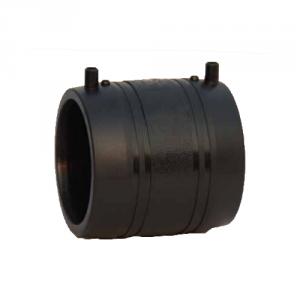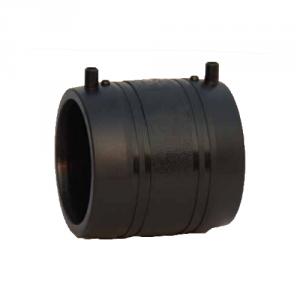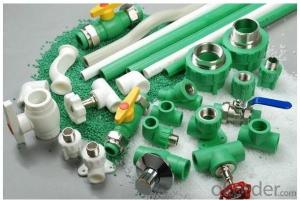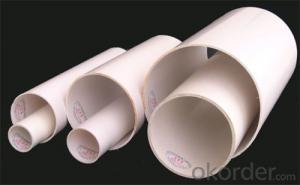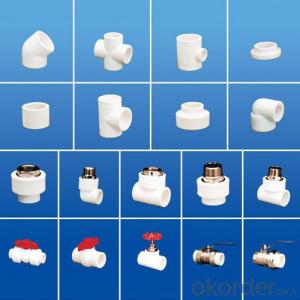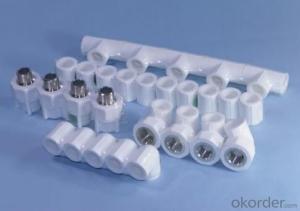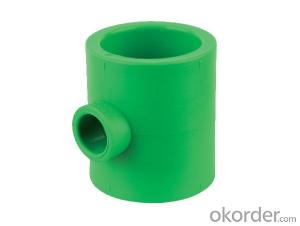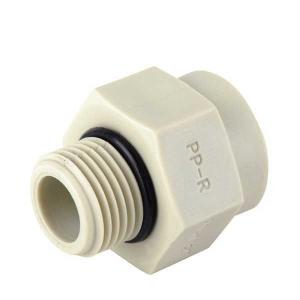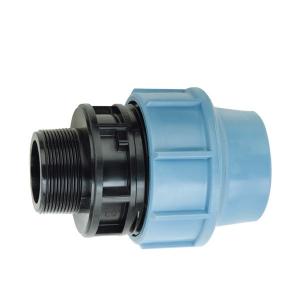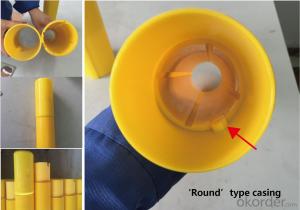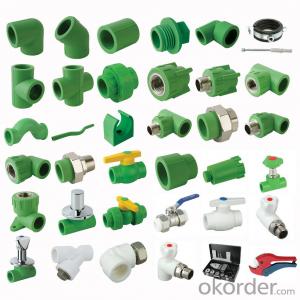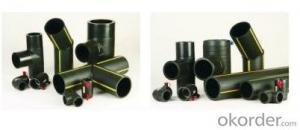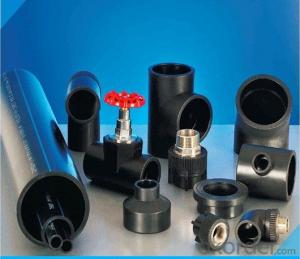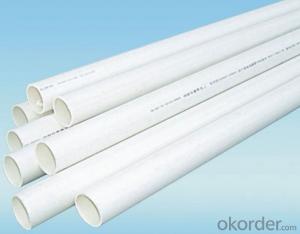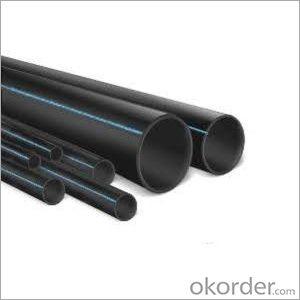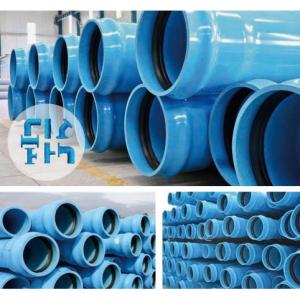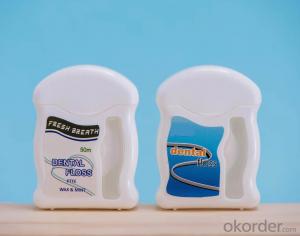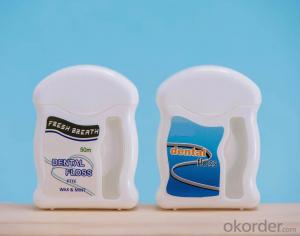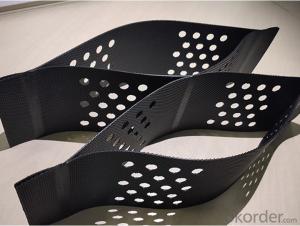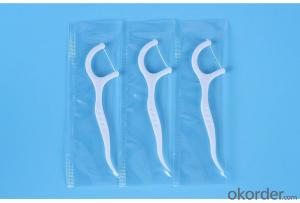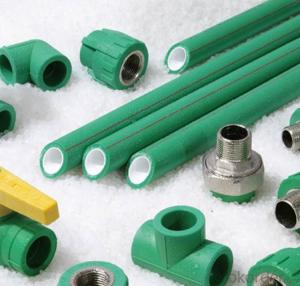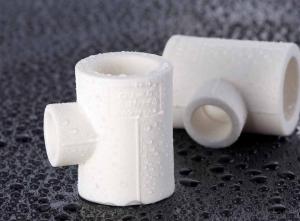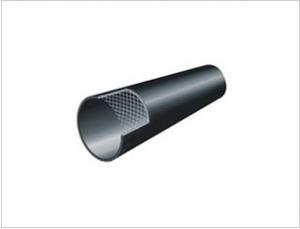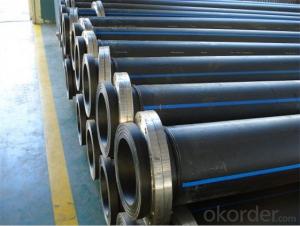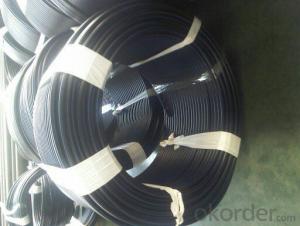Electrofusion Coupling Reducer PE Pipe Fittings EN12201-3
- Loading Port:
- China main port
- Payment Terms:
- TT or LC
- Min Order Qty:
- 100 m
- Supply Capability:
- 10000 m/month
OKorder Service Pledge
OKorder Financial Service
You Might Also Like
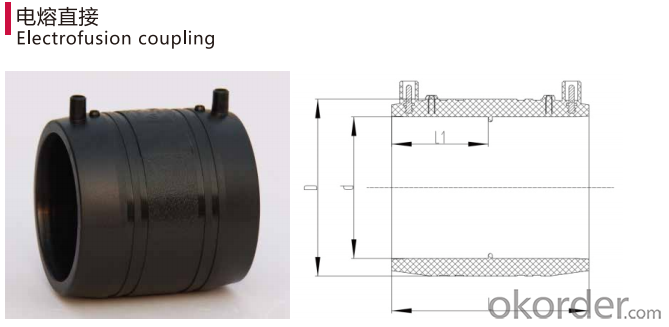
Pressure grade:0.8MPa-1.6MPa
Size: DN50MM-DN1000MM
Specification:
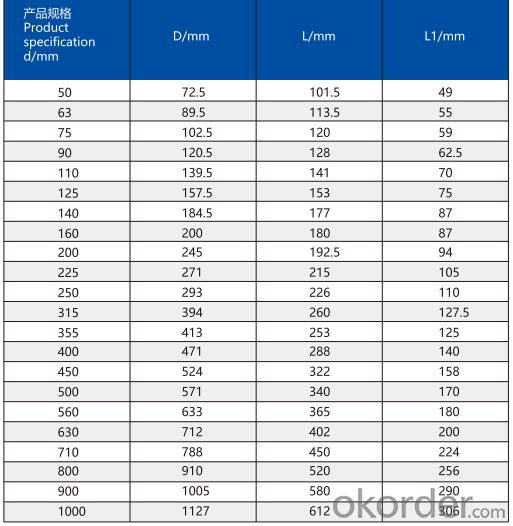
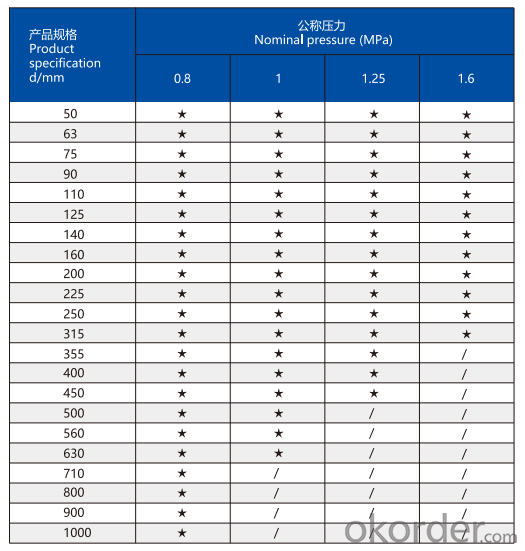
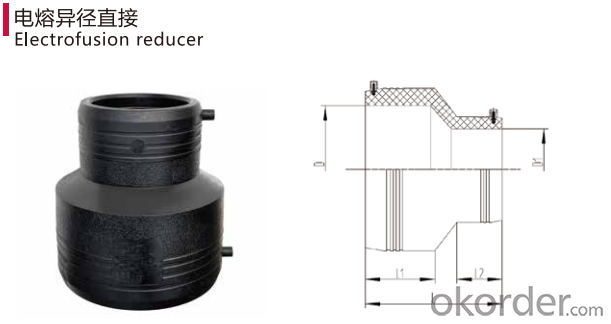
Pressure grade:≤1.6MPa
Size: DN50MM-DN315MM
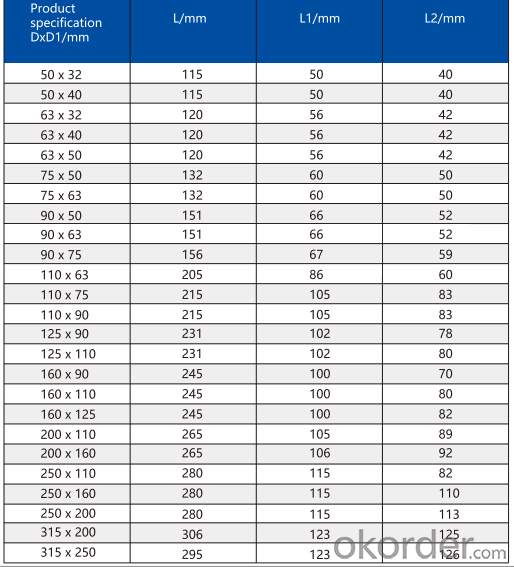
We own three industry bases for manufacturing pipes, fittings and new materials, including the biggest production line of steel wire reinforced PE composite pipe in the world, and top advanced PE pipe production line.
We get long term cooperation with leading material suppliers in the world and professionally provide the pipeline system solutions of matched products and technical cases by the whole industry chain from materials R&D to pipeline engineering installation.
- Q:Can plastic pipe fittings be used for reverse osmosis systems?
- Yes, plastic pipe fittings can be used for reverse osmosis systems.
- Q:Can plastic pipe fittings be used in oil and gas applications?
- Yes, plastic pipe fittings can be used in oil and gas applications. Plastic materials like polyethylene and polypropylene are commonly used in these industries due to their corrosion resistance, durability, and cost-effectiveness. Plastic pipe fittings can effectively handle the pressure and temperature requirements of oil and gas systems while providing reliable performance and longevity. However, it is important to choose fittings that are specifically designed and certified for oil and gas applications to ensure safety and compliance with industry standards and regulations.
- Q:Can plastic pipe fittings be used for water supply in remote areas?
- Yes, plastic pipe fittings can be used for water supply in remote areas. Plastic pipes and fittings are lightweight, easy to transport, and resistant to corrosion, making them suitable for remote locations where traditional materials may be difficult to access. Additionally, plastic fittings are often cost-effective and require minimal maintenance, making them a practical choice for water supply systems in remote areas.
- Q:Are plastic pipe fittings suitable for food processing industries?
- No, plastic pipe fittings are not suitable for food processing industries as the chemicals leaching from the plastic can contaminate the food and pose a health risk.
- Q:Are plastic pipe fittings more cost-effective than metal fittings?
- Plastic pipe fittings are generally more cost-effective than metal fittings. They are cheaper to produce, lighter in weight, and easier to install, which can save on labor costs. Additionally, plastic fittings do not corrode or rust, reducing the need for maintenance or replacement. However, the choice between plastic and metal fittings ultimately depends on the specific application and requirements of the project.
- Q:Are plastic pipe fittings resistant to hydraulic oils?
- Yes, plastic pipe fittings are generally resistant to hydraulic oils.
- Q:Can plastic pipe fittings be used for underground irrigation systems?
- Yes, plastic pipe fittings can be used for underground irrigation systems. Plastic pipe fittings are commonly used in these systems due to their durability, resistance to corrosion, and cost-effectiveness. They are also lightweight and easy to install, making them a popular choice for underground irrigation systems.
- Q:Are plastic pipe fittings compatible with push-to-connect fittings?
- Yes, plastic pipe fittings are compatible with push-to-connect fittings. Push-to-connect fittings are designed to work with various types of pipes, including plastic pipes such as PVC, CPVC, and PEX. These fittings provide a quick and easy way to connect pipes without the need for any special tools or adhesives.
- Q:Can plastic pipe fittings withstand high temperatures?
- Yes, plastic pipe fittings can withstand high temperatures, but it depends on the specific type of plastic used. Certain plastics like PVC (polyvinyl chloride) have a maximum temperature limit around 140°F (60°C), while others like CPVC (chlorinated polyvinyl chloride) can handle temperatures up to 200°F (93°C). It is important to choose the appropriate plastic material for the desired temperature range to ensure the fittings can withstand high temperatures without deforming or failing.
- Q:How do plastic pipe fittings handle seismic activity?
- Plastic pipe fittings have the ability to flex and absorb energy during seismic activity, which helps to minimize the impact of vibrations and ground movement. These fittings are designed to withstand the stress and strain caused by earthquakes, ensuring that the overall integrity of the piping system is maintained. Additionally, plastic materials are lightweight, making them less likely to cause damage or injury in the event of seismic activity.
1. Manufacturer Overview |
|
|---|---|
| Location | |
| Year Established | |
| Annual Output Value | |
| Main Markets | |
| Company Certifications | |
2. Manufacturer Certificates |
|
|---|---|
| a) Certification Name | |
| Range | |
| Reference | |
| Validity Period | |
3. Manufacturer Capability |
|
|---|---|
| a)Trade Capacity | |
| Nearest Port | |
| Export Percentage | |
| No.of Employees in Trade Department | |
| Language Spoken: | |
| b)Factory Information | |
| Factory Size: | |
| No. of Production Lines | |
| Contract Manufacturing | |
| Product Price Range | |
Send your message to us
Electrofusion Coupling Reducer PE Pipe Fittings EN12201-3
- Loading Port:
- China main port
- Payment Terms:
- TT or LC
- Min Order Qty:
- 100 m
- Supply Capability:
- 10000 m/month
OKorder Service Pledge
OKorder Financial Service
Similar products
New products
Hot products
Related keywords
